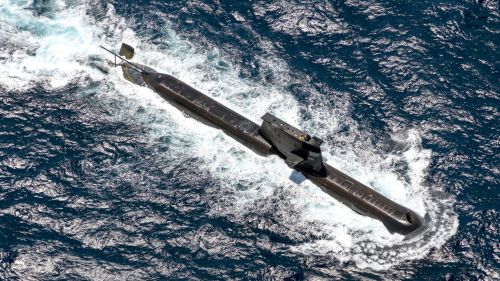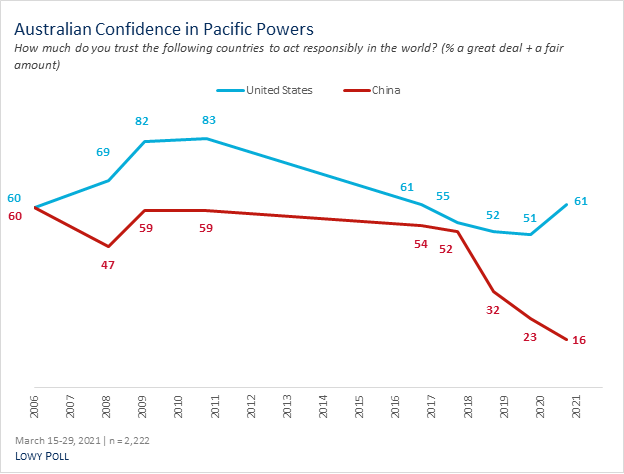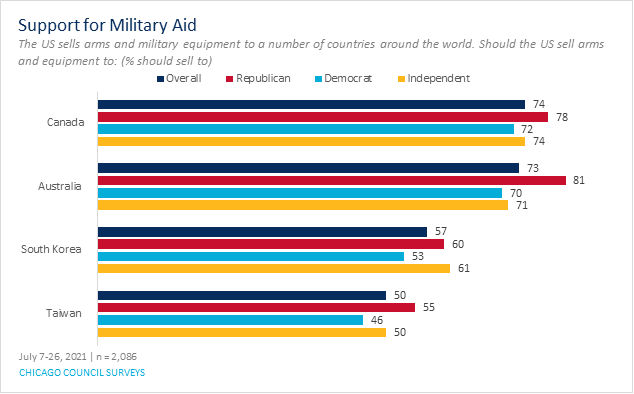Public Support for AUKUS Relationships despite Backlash

The AUKUS submarine deal was strongly condemned by China and France, but will likely enjoy broad support among US and Australian publics.
The unwelcomed surprised of AUKUS, the trilateral security partnership between Australia, the United States and the United Kingdom, sparked significant international controversy. France regarded the deal as a “stab in the back” and withdrew its ambassadors from both the United States and Australia in protest, only recently returning them to their posts. A spokesperson for the Chinese foreign ministry condemned the deal as “extremely irresponsible,” claiming it “seriously undermines regional peace and stability and intensifies the arms race.” While China was not mentioned by name in the AUKUS announcement, Biden, Morrison, and Johnson all seemed to have China’s recent adventurism in the South China Sea top-of-mind when naming heightened security concerns in the Indo-Pacific region as a key reason for this new partnership.
Australians and Americans Positive on Australia-US Relationship
Deals such as AUKUS are built on positive relationships and trust between nations, and survey data collected in March of by the Lowy Institute and the Chicago Council on Global Affairs indicate a growing positive bilateral relationship between Americans and Australians. On a zero to 100 feeling thermometer scale, with zero representing a very cold, unfavorable feeling and 100 representing a very warm, favorable feeling, Americans gave Australia an average of 74, while Australians gave the United States a slightly cooler average of 62. Australians’ trust toward the United States is trending positively after declining sharply over the course of the last decade. According to data from the Lowy Institute, just over six in 10 Australians (61%) reported that they trust the United States either a great deal or a fair amount—a marked increase from 51 percent the previous year.

At the same time, survey results indicate that Americans and Australians generally share their leaders’ skepticism regarding China’s intentions as it increases its presence in the world, and particularly in the Indo-Pacific region. Australians’ trust in China has been trending downwards since 2018; by 2021 only 16 percent said they trusted China a great deal or a fair amount to act responsibly in global affairs. Similarly, when asked about China as a threat in 2020, a majority of Americans (55%) considered the development of China as a world power to be a critical threat. When Americans were asked in 2021 whether they consider China an ally, a necessary partner, an adversary, or a rival, 61 percent of Americans classified China as an adversary or rival.
Broad support for security cooperation
Shared positive views between Australians and Americans also carry over into support for greater bilateral security cooperation. According to Council data, 73 percent of Americans support the sale of arms and military equipment to Australia. This level of support for arms sales is higher than for any other US partner in the Indo-Pacific region and places Australia second only to the United States’ long-time security partner Canada in public support for arms sales. Though support for arms sales was not asked in Australia, when asked by the Lowy Institute about the importance of the US-Australia alliance to Australian security, nearly eight in 10 Australians (78%) reported that the alliance was either fairly or very important to their security. Overall, these results signal broad support from the American public for increased security cooperation with Australia.
